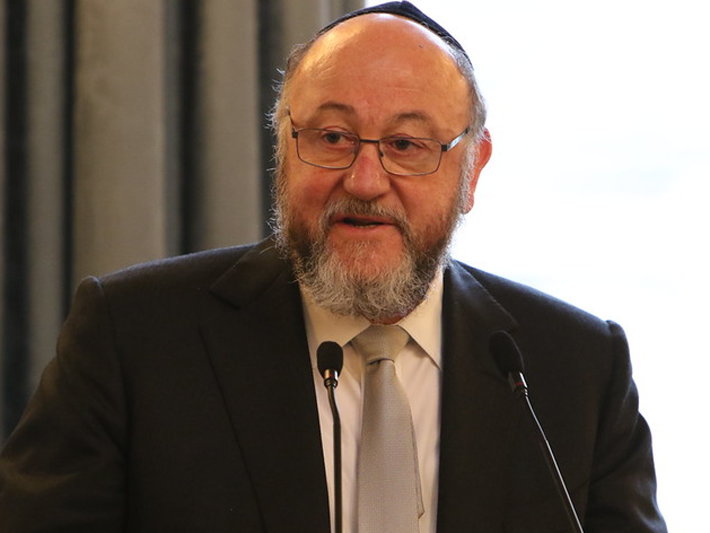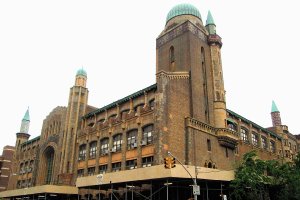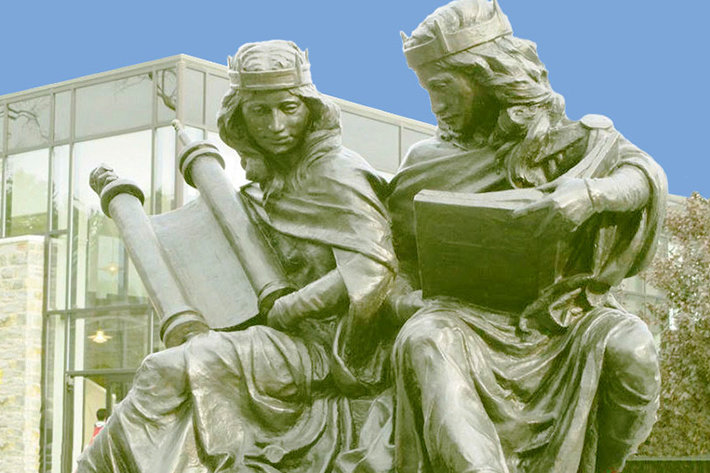To cultivate interfaith collaboration and understanding between the Church of Scotland and the Jewish community, a group of ministers and rabbis have been working together to create a Jewish-Christian glossary.

The list of terms will help members of both religions learn more about each other’s faith, while also reminding themselves of the special concepts and expressions essential to their own religion.
Rabbi David Mason of Muswell Hill Synagogue in London was recently invited to address the General Assembly of the Church of Scotland to discuss the glossary where church commissioners were asked to approve the collection of terms.
Mason hopes the glossary will enhance relations between the two faiths.
Work on the glossary began in 2014, after Chief Rabbi Ephraim Mirvis of the United Hebrew Congregations of the Commonwealth took the General Assembly to task when they issued a report highly critical of Israel. Mirvis warned that their criticism was misguided and raised concerns that it would strain relations between the two faiths.
Mason upheld Mirvis’s actions and praised his courage for taking action to resolve the conflict and proposing a solution.
“Chief Rabbi Mirvis’s response was not to run away from this deep challenge, but to engage in dialogue and conversation,” Mason said. “And so for the last few years, that dialogue has developed and grown. He also put on record his “thanks to all those within the Church leadership who never ceased to see the vital importance in this dialogue. I have gained friends in the Church of Scotland through this dialogue—and have only grown in my affection for the Church.”
Mason joked that both Jews and Scots were not shy about engaging in conflict, fondly calling them “an argumentative lot.” He acknowledged that dialogue between the two communities had sometimes posed a challenge. “In the development of a glossary of terms, I think we have together created a path of great hope for the future relationship between the Church and the Jewish community,” he said.
In Mason’s mind, the interfaith glossary accomplished two major things: “…it has deepened mutual understanding surrounding the very terms that can cause discord,” and “it has offered up vocabulary, wording, and understanding for both our communities that can ensure that in expressing passionate opinions, we do not offend each other.”
Living together in peace does not mean the two faiths must see eye to eye on every point. “Harmony does not here mean that we will agree,” said Mason. “It means that we will disagree well. We will take different approaches based on our contexts and subjective experiences—while being scrupulous in ensuring that the other is not offended.”
Mason grew up in Edinburgh and said it was a great honor to get to know leaders of the Church with the two traditions engaging in fruitful and respectful dialogue.
Mason spoke of the close links between his childhood synagogue and the Church of Scotland. He recalled how the moderator of the Church of Scotland, at the installation of the Holocaust Memorial in Edinburgh, spoke of Mason’s great-grandfather, a rabbi in pre-Nazi Germany. “These bonds of friendship were so important to my great-grandfather,” said Mason. “And they inspired me in the work I do.”
_______________
From its beginnings, the Church of Scientology has recognized that freedom of religion is a fundamental human right. In a world where conflicts are often traceable to intolerance of others’ religious beliefs and practices, the Church has, for more than 50 years, made the preservation of religious liberty an overriding concern.
The Church publishes this blog to help create a better understanding of the freedom of religion and belief and provide news on religious freedom and issues affecting this freedom around the world.
The Founder of the Scientology religion is L. Ron Hubbard and Mr. David Miscavige is the religion’s ecclesiastical leader.
For more information visit the Scientology website or Scientology Network.


